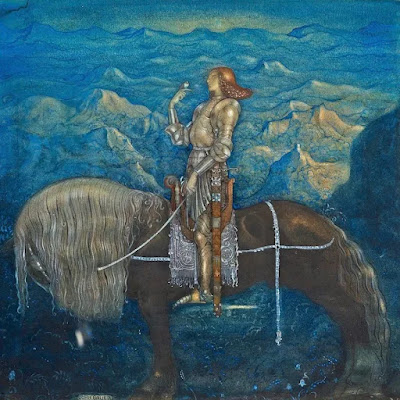Words, images and documents by or collected by Jessica Schouela
Saturday, 28 January 2023
Tuesday, 17 January 2023
Friday, 13 January 2023
Jessica Gaitán Johannesson, The Nerves and their Endings
This remarkable collection of essays begins with an exploration of control and ends with one on hope, discussing so much in between: climate collapse, activism, eating disorders, identity (race, queerness, nationality), naturalising in the UK, capitalism and work, motherhood, illness and loss. Intersectionality is at the core Gaitán Johannesson bridging the personal and political as well as the relational and relative experiences of belonging or "unbelonging".
Linking climate anxiety and anorexia in the first essay, Gaitán Johannesson teases out the conflicting duality of wanting to control your self and surroundings—what you choose to eat or not, or your personal choices around living greener by, for example, choosing not to fly—and the recognition that so much is out of your control, that things happen to us without notice or invitation, that we are products of society, and that those with the greatest power to make the enormous changes are needed to safeguard the planet from further climate chaos and loss.
In one essay, Gaitán Johannesson interweaves moving and tender passages where she directly addresses a future and/or hypothetical child, while detailing her ambivalence and anxiety around having children given the projection of further, extreme climate collapse. Her arguments focus less around the carbon footprint of a child or overpopulation, which she presents as lacking in nuance—as carbon footprint is highest among the world's richest 10% and overpopulation has been used to justify racial violence and suppression—and distractions from the greater issues, which are, in short, late capitalism, endless production, extraction, and exploitation. Instead, Gaitán Johannesson's impulse is parental: to protect from suffering. That she would be unable to reassure her child that they would be safe and live a long and quality life is cause for distress and hesitation. Rather than present a judgmental position of right and wrong around having children in our times, Gaitán Johannesson acknowledges the personal and private stakes of this consideration, and that her alongside her anxiety and ambivalence—which she has made public, for better or for worse—is the recognition that this would entail a personal loss.
The Nerves and their Endings was so relatable for me in so many ways (Gaitán Johannesson's narrative of becoming a British citizen could have been written as my own). I so valued the sensitivity but also anger, energy and frustration that came through in each of the essays, which reflect how emotionally complex it is to make our way through the world right now in a way that foregrounds care, compassion, courage and action.
Saturday, 7 January 2023
Saturday, 31 December 2022
Friday, 30 December 2022
Hanya Yanagihara, A Little Life
As such, another argument runs through the book: that maybe we have wrongly valued life as living for oneself and maybe it is the people around us who love us specifically and especially that tether us to the world and maybe that is natural and normal and not ill. Throughout the book is the spectre of what ifs: if that one abuse hadn’t taken place, if that one person hadn’t died when they had, etc., could Jude’s life have been endured? And then we again face the question if life should be “endured” or “survived” at all and that some people, who are given early love and stability, confidence in their existence are just lucky and can live life, where hardships are sandwiched between happy years, while those who haven’t been so lucky must try to balance the scales to determine what is less torturous and thus what is more kind: living (enduring, surviving) or not living. It is necessary for us as a society to believe in therapy and medicine and love and that these should always provide a person with the right tools to continue working to the goal of staying alive because if we don’t unquestionably accept that these life rafts can save anybody, we open the possibility of doubt and with this doubt, comes the risk that some people may be worth giving up on. And with that shameful thought may follow the acceptance of the possible (unacceptable) death of those we love and with that acceptance comes the risk of complicity and with that, guilt and failure against this universally accepted and righteous goal. And yet, we don't give up but learn to live with it differently.
The outcome of the novel reminded me of what Michael Pederson said to me when I asked him about his friendship with Scott Hutchison at his book reading a few months ago, which has stayed with me: that being Scott’s friend came with the understanding, acceptance, that losing him to suicide was always there as a possibility and it could happen abruptly, with no clues or opportunity for intervention and this came with the territory of loving him and and enjoying life with him for every day in which he chose to be alive.




















